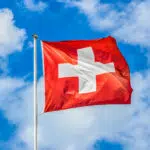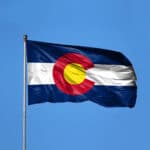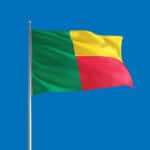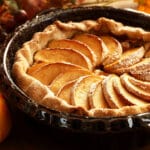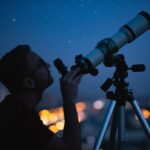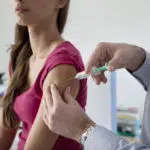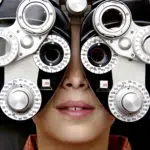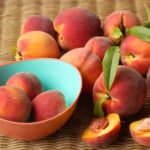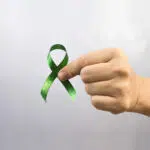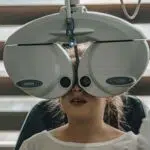Woman Astronomers Day is celebrated on August 1 every year. This holiday celebrates the many achievements of women in science that have long gone unrecognized. The contributions that female astronomers have made are even more impressive considering they practiced astronomy as a hobby, having been denied a chance at formal education. The most well-known is Maria Mitchell, who made a name for herself not only by her accomplishments in astronomy but by her dedication to furthering women’s education. This holiday celebrates her achievements and sheds light on the importance of recognizing women’s contributions to science.
History of Woman Astronomers Day
Women’s accomplishments in science have long gone unrecognized. This day sheds light on the many discoveries made by female astronomers and more so the achievements of Maria Mitchell. Maria Mitchell was born in 1818. Her mother was a library worker and her father was a schoolteacher interested in astronomy. While there was little to no value in women’s education at the time, the Mitchells, like other Quakers, valued education and taught all their sons and daughters the same. Maria attended school and worked as a teaching assistant, developing new teaching techniques. She spent most of her life working as a librarian and assisting her father with astronomical observations for the U.S. Coast Survey.In 1847, Mitchell discovered the Comet 1847 VI which she published in the Silliman’s Journal. It was later named the “Miss Mitchell’s Comet”. That same year, King Frederick VI of Denmark awarded her a gold medal for her discovery. She is the first woman and the first American to receive this award. Although she lacked a college education, she became the first female professor of astronomy when Matthew Vassar, the founder of Vassar College, appointed her to the position in 1865. Maria Mitchell is the most well-known female astronomer, but she is not the only notable one. Thanks to her Quaker upbringing, Mitchell’s interest in astronomy was encouraged early on. It’s also important to look at those who did not receive much encouragement at first. Edward Pickering is a well-renowned astronomer who hired his maid, Williamina Fleming, to help him with analyzing data. She became one of the pioneers of Harvard Computers, a team of women who processed astronomical data. Fleming went on to make many scientific discoveries such as her discovery of the ‘Horsehead Nebula’ in 1888. Pickering and Fleming also created the ‘Pickering Fleming’ system which helped in the classification of stars based on temperature.
Woman Astronomers Day timeline
Caroline Herschel, the first woman to discover a comet, discovers her first comet and went on to discover seven more in the following years.
Maria Mitchell discovers her first comet, Comet 1847 VI.
Maria Mitchell becomes the first female astronomy professor.
Edward Pickering hires a team of women to assist him in processing astronomical data.
Williamina Fleming discovers the Horsehead Nebula.
Woman Astronomers Day FAQs
What percentage of women work in astronomy?
A 2014 survey estimates that 26% of astronomers are women.
Who discovered dark matter?
Vera Rubin helped discover dark matter along with Fritz Zwicky.
Who was the first black woman astronomer?
Barbara A. Williams is the first Black woman to receive a Ph.D. in astronomy in 1981.
How to Observe Woman Astronomers Day
-
Educate yourself
Women have made many accomplishments in astronomy. Do your part by first educating yourself about all the discoveries that women have contributed to society.
-
Educate others
Host events in your school or workplace, make pamphlets, and share this information with others. You’ll be surprised by how many are ignorant of women’s role in science. Maybe you’ll inspire young girls to follow their passion.
-
Visit observatories and planetariums museums
What better way to celebrate than to visit the nearest museum. This is one of the best places to learn more about astronomy.
5 Fascinating Facts About Astronomy
-
The solar system is ancient
The solar system is calculated to be about 4.5 billion years old.
-
The asteroid that’s hundreds of miles wide
Ceres, the largest asteroid in the solar system, has a diameter of 584miles.
-
We are never up to date
Since light travels at a speed of 300,000 kilometers per second and one light-year is about 55.6 trillion miles, this means we see celestial objects in the past whenever we are looking at them.
-
Only a small portion is visible
Galaxies and celestial bodies only make up 5% of the universe while the rest is composed of dark matter and unseen dark energy.
-
The galaxies visible to the naked eye
Some of the galaxies can be seen with the naked eye such as the Milky Way, Sculptor Galaxy, Centaurus A, Andromeda Galaxy, etc.
Why Woman Astronomers Day is Important
-
It appreciates female astronomers
Maria Mitchell is not as well known as she should be and neither are her fellow female astronomers. She is not the only woman in science who has gone unrecognized. This day helps shed light on other important women in astronomy such as Caroline Herschel, the first woman to discover a comet.
-
It encourages women
If you look back at other female astronomers, many have only been able to make their discoveries by working with their fathers, brothers, or husbands. Imagine what these women could’ve done with formal education. They had to work ten times as hard with little to no recognition.
-
It encourages women’s education
Learning more about what women contributed to science and how their accomplishments were unseen encourages young girls to pursue science and advocate for themselves.
Woman Astronomers Day dates
| Year | Date | Day |
|---|---|---|
| 2023 | August 1 | Tuesday |
| 2024 | August 1 | Thursday |
| 2025 | August 1 | Friday |
| 2026 | August 1 | Saturday |
| 2027 | August 1 | Sunday |














